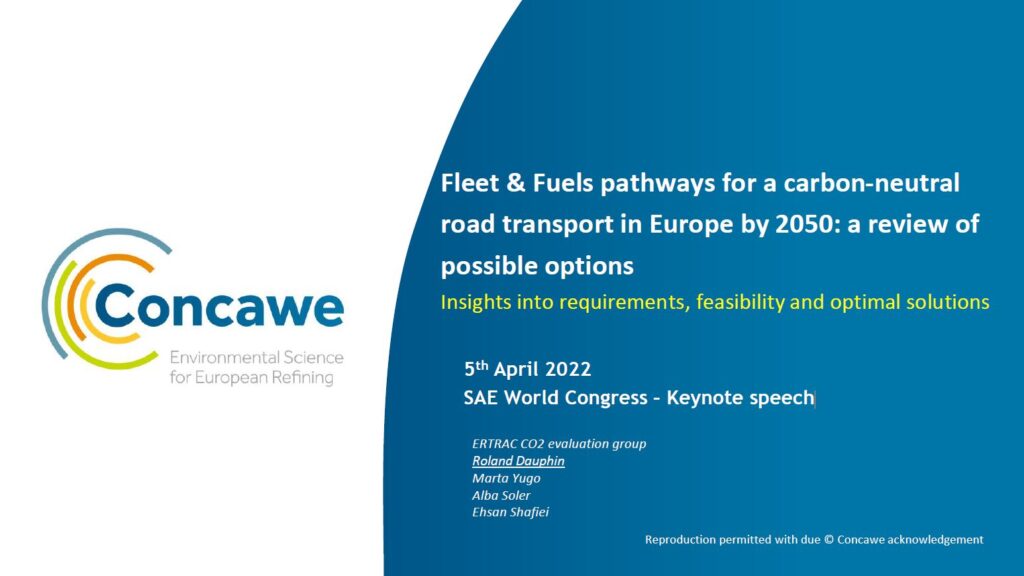Publications
Search publications
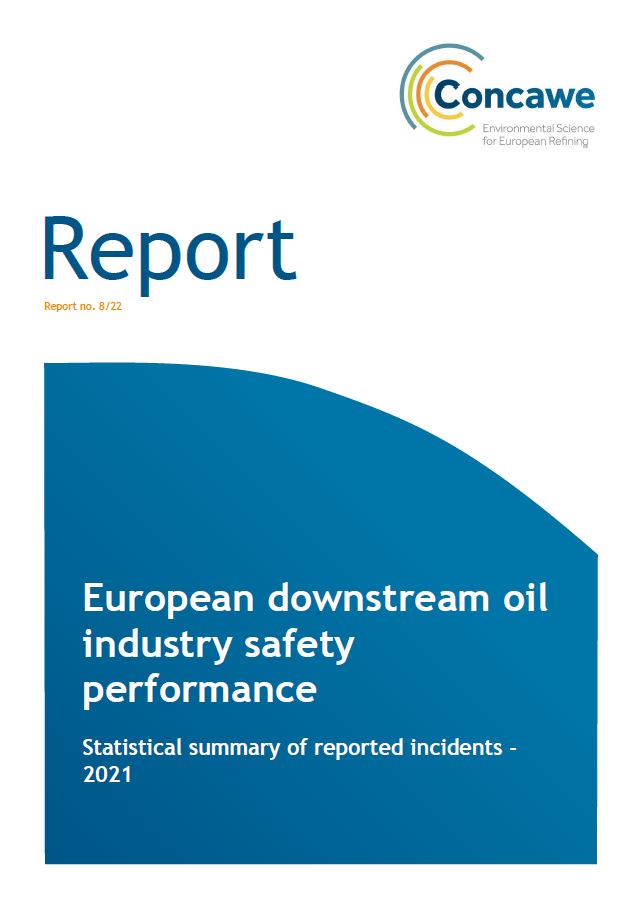
August 4, 2022
European downstream oil industry safety performance
Report no. 8/22: The 2021 annual report on European downstream oil industry safety performance presents work-related personal injuries for the industry’s own employees and contractors and process sa...
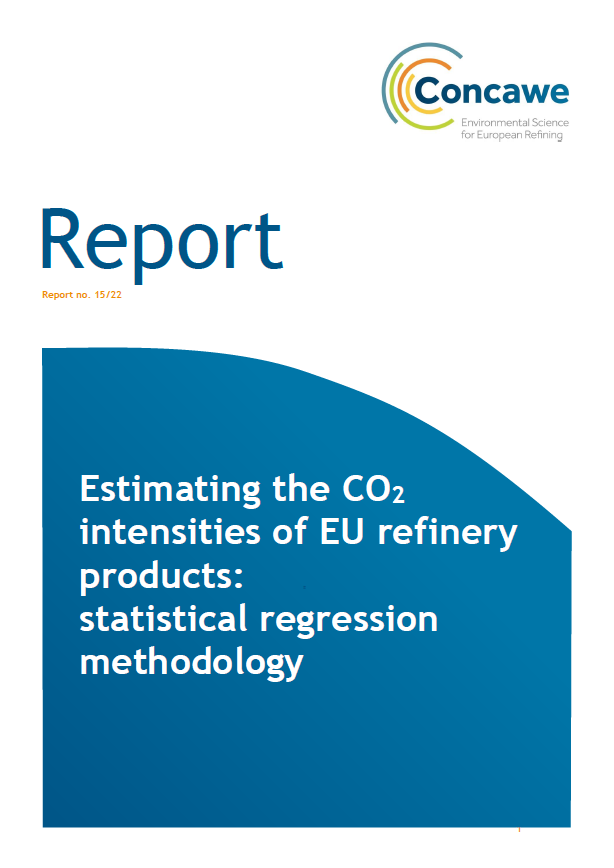
July 26, 2022
Estimating the CO2 intensities of EU refinery products: Statistical Regression Methodology
Report no. 15/22: This study aims at estimating the CO2 intensity of petroleum products at the gate of an average EU refinery (refining step of the production process, excluding upstream and downstrea...
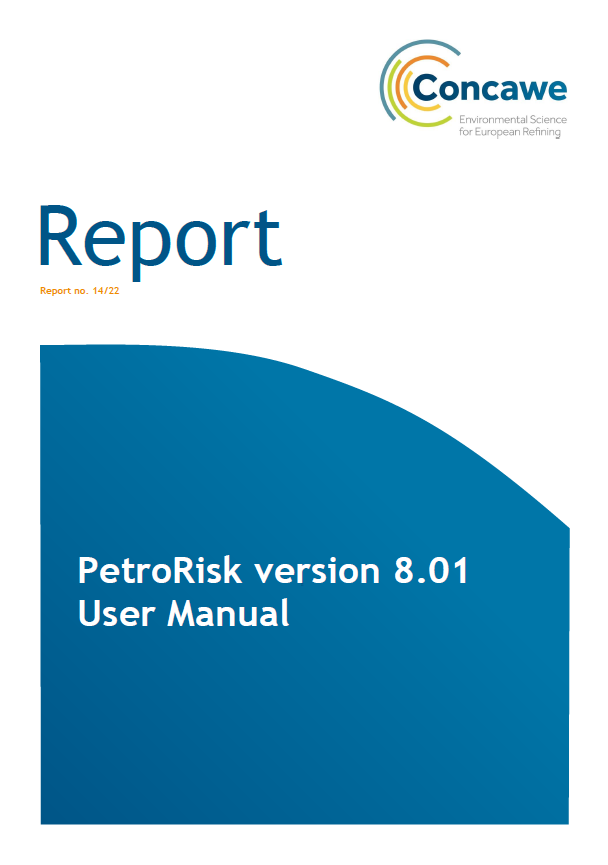
July 22, 2022
PetroRisk version 8.01 – User Manual
Report no. 14/22: This report provides a detailed description of version 8.01 of Concawe’s PetroRisk model: (1) conceptual design, (2) main improvements compared to previous versions, (3) KNIME, the...
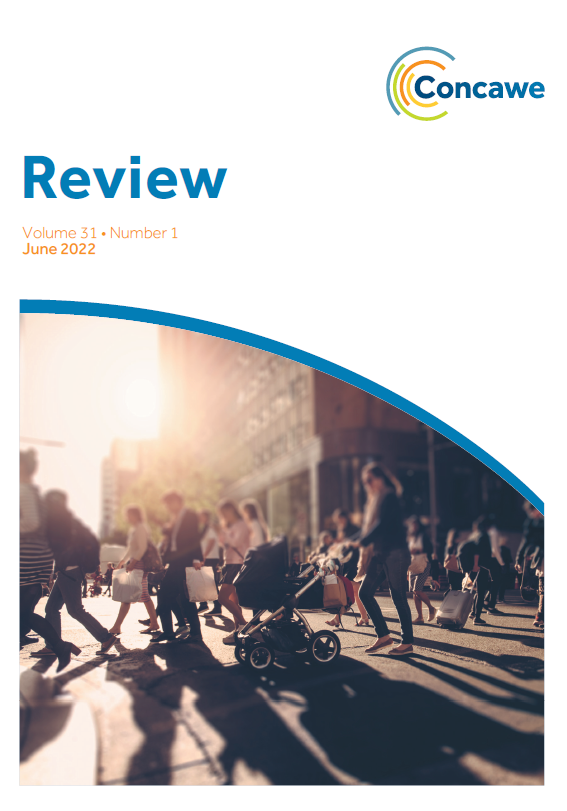
July 15, 2022
Concawe Review 31.1
Evaluation of pathways to decarbonise transport, simulations of the impact of our products on air quality, evaluation of the safety of our industrial and supply activities: the articles in this editi...
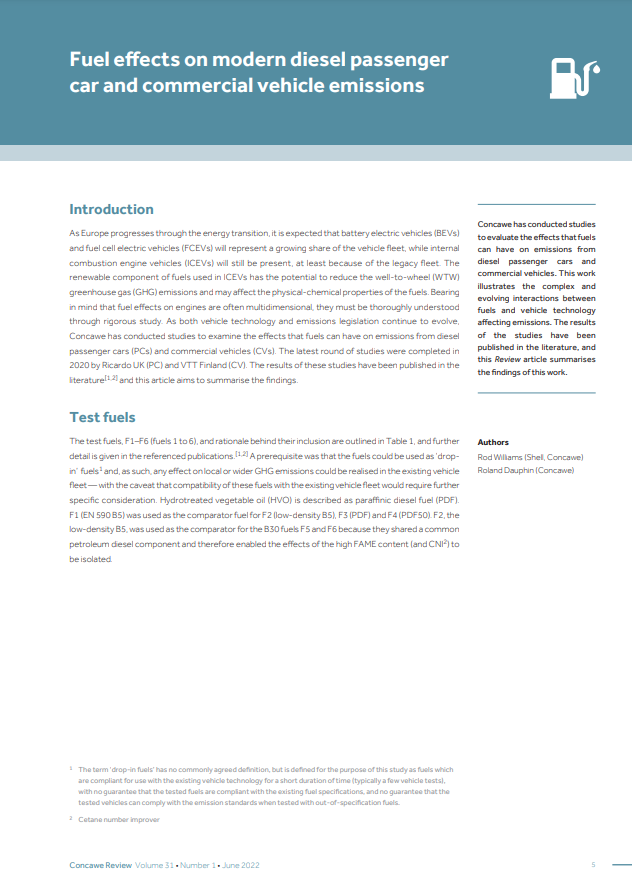
July 15, 2022
Fuel effects on modern diesel passenger car and commercial vehicle emissions (Concawe Review 31.1)
As both vehicle technology and emissions legislation continue to evolve, Concawe has conducted studies to examine the multidimensional effects that fuels can have on greenhouse gases (GHGs) and pollut...
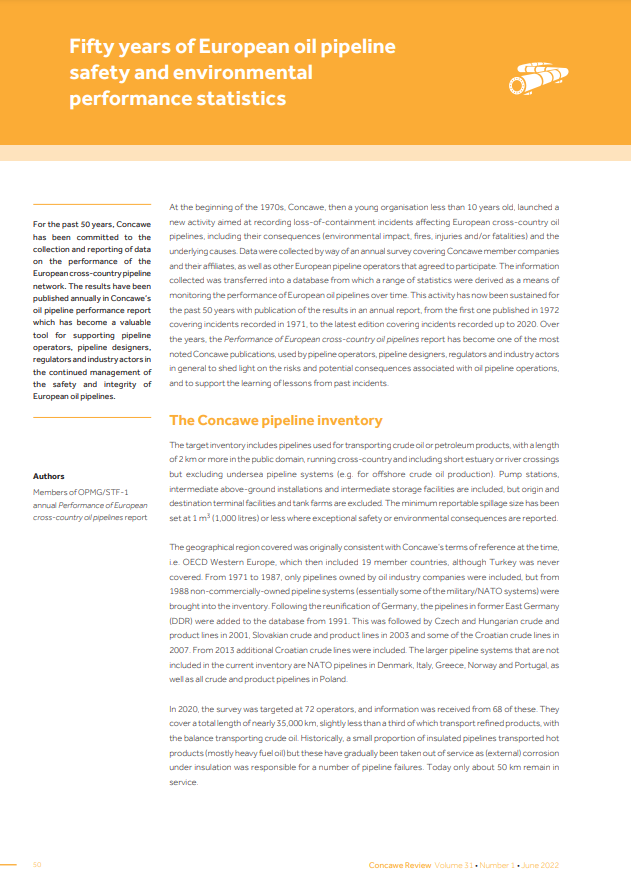
July 15, 2022
Fifty years of European oil pipeline safety and environmental performance statistics (Concawe Review 31.1)
At the beginning of the 1970s, Concawe, then a young organisation less than ten years old, launched a new activity aimed at recording loss-of-containment incidents affecting European cross-country oil...
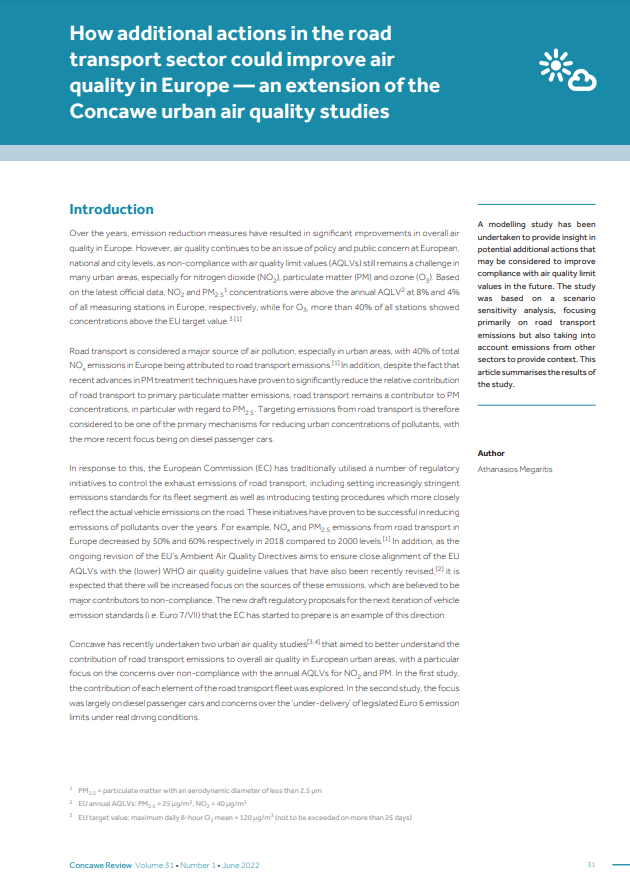
July 15, 2022
How additional actions in the road transport sector could improve air quality in Europe — an extension of the Concawe urban air quality studies (Concawe Review 31.1)
This article presents results from a modelling study carried out to examine how concentrations of the major urban pollutants (i.e. nitrogen dioxide (NO2), particulate matter (PM) and ozone (O₃)) wou...
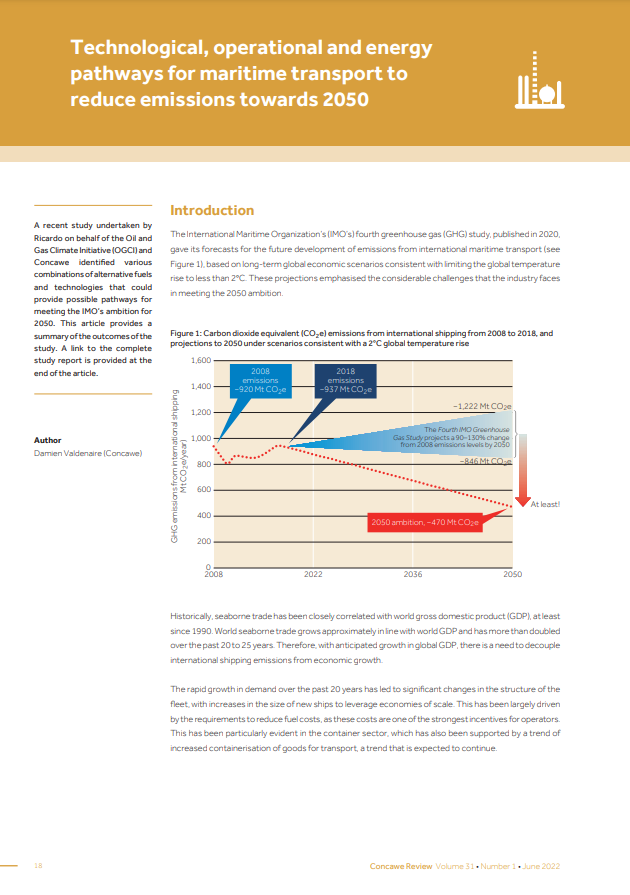
July 15, 2022
Technological, operational and energy pathways for maritime transport to reduce emissions towards 2050 (Concawe Review 31.1)
This article provides a summary of a ‘deep dive’ study into the future development of emissions from international maritime transport. The study is part of Concawe’s Low Carbon Pathways project,...
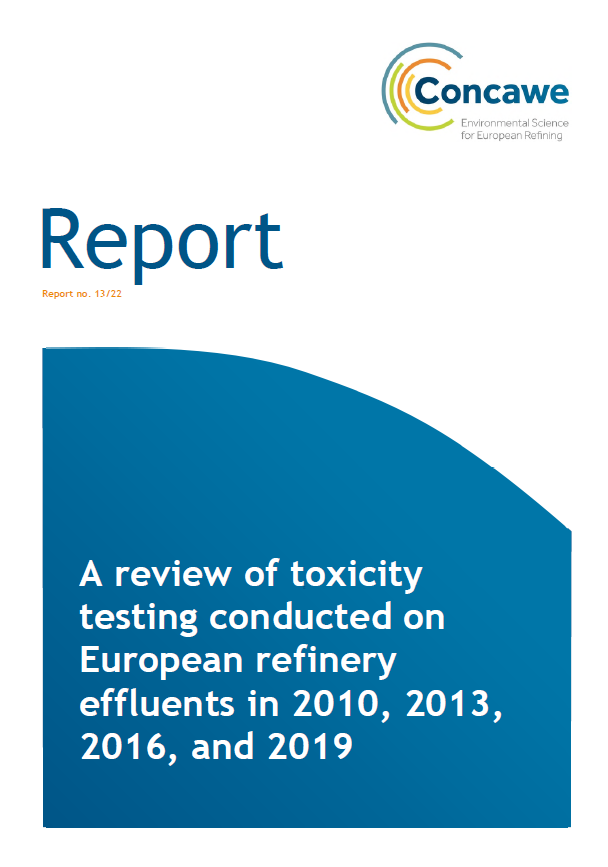
July 15, 2022
A review of toxicity testing conducted on European refinery effluents in 2010, 2013, 2016, and 2019
Report no. 13/22: This report provides an assessment of the extent to which toxicity testing is carried on European refinery effluents, and the types of tests being used. The analysis is based on resp...
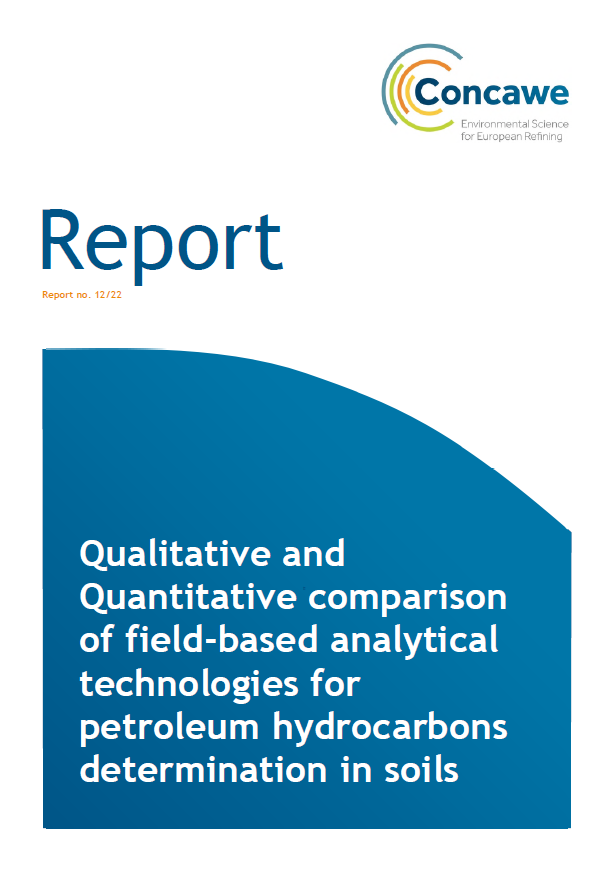
July 11, 2022
Qualitative and Quantitative comparison of field-based analytical technologies for petroleum hydrocarbons determination in soils
Report no. 12/22: The performance of seven field-based technologies including 3 portable solvent-based technologies and 4 handheld solvent free technologies were evaluated for petroleum hydrocarbons d...
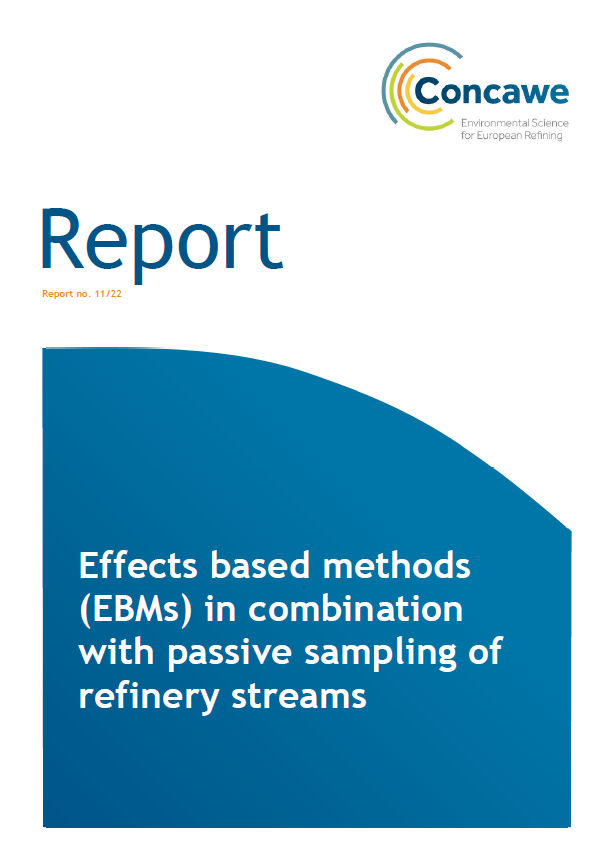
July 8, 2022
Effects based methods (EBMs) in combination with passive sampling of refinery streams
Report no. 11/22: This report provides an overview of spot and passive sampling data of three refinery effluents after treatment that were collected for chemical and ecotoxicological effluent assessme...
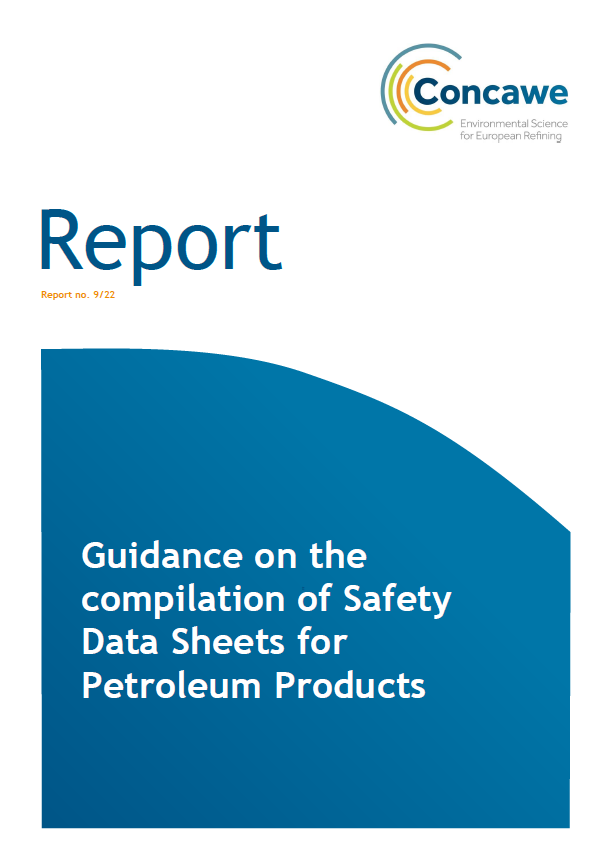
June 29, 2022
Guidance on the compilation of Safety Data Sheets for Petroleum Products
Report no. 9/22: This Guidance addresses the specific Concawe recommendations for authoring of (extended) Safety Data Sheets for Unknown or Variable composition, Complex reaction products or of Biolog...
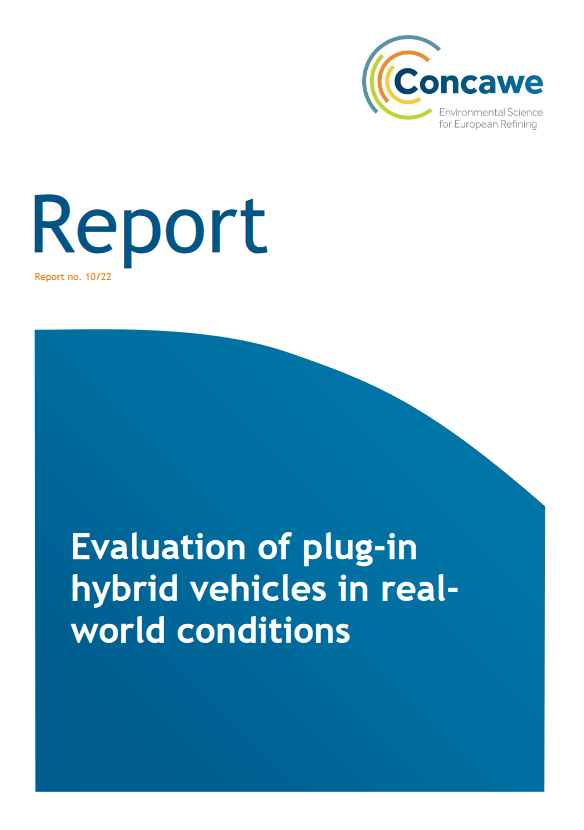
June 20, 2022
Evaluation of plug-in hybrid vehicles in real-world conditions
Report no. 10/22: Assessing the real-world energetic performance and emissions of Plug-in Hybrid Vehicles (PHEVs) is complex. First, because of the complexity of the powertrain itself, pairing thermal...
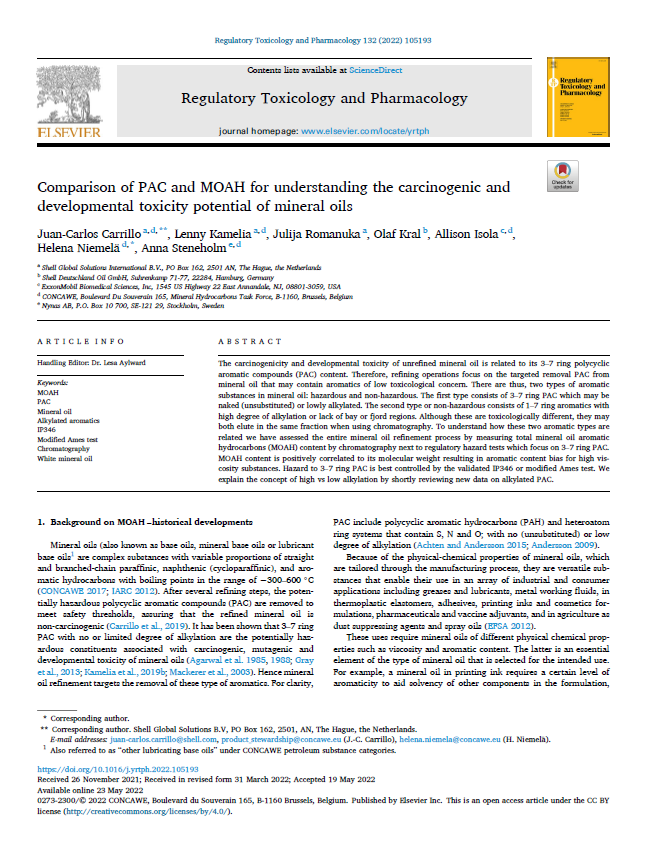
June 8, 2022
Comparison of PAC and MOAH for understanding the carcinogenic and developmental toxicity potential of mineral oils
The carcinogenicity and developmental toxicity of unrefined mineral oil is related to its 3–7 ring polycyclic aromatic compounds (PAC) content. Therefore, refining operations focus on the targeted r...
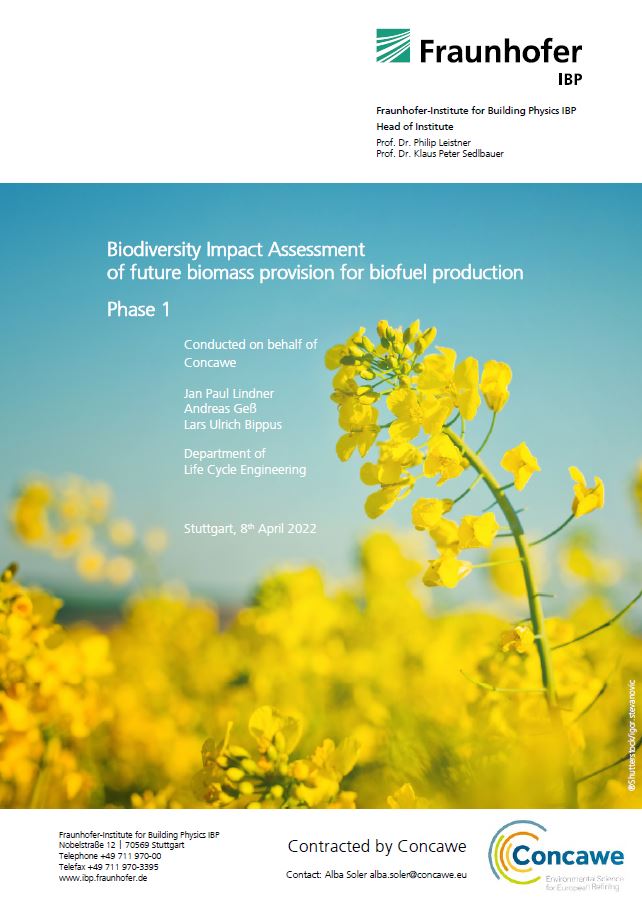
June 2, 2022
Biodiversity Impact Assessment of future biomass provision for biofuel production – Phase 1
This study aims to determine environmental impacts on biodiversity due to biomass production for bioenergy use. For this purpose the Biodiversity Impact Assessment (B.I.A.) method presented by Lindner...
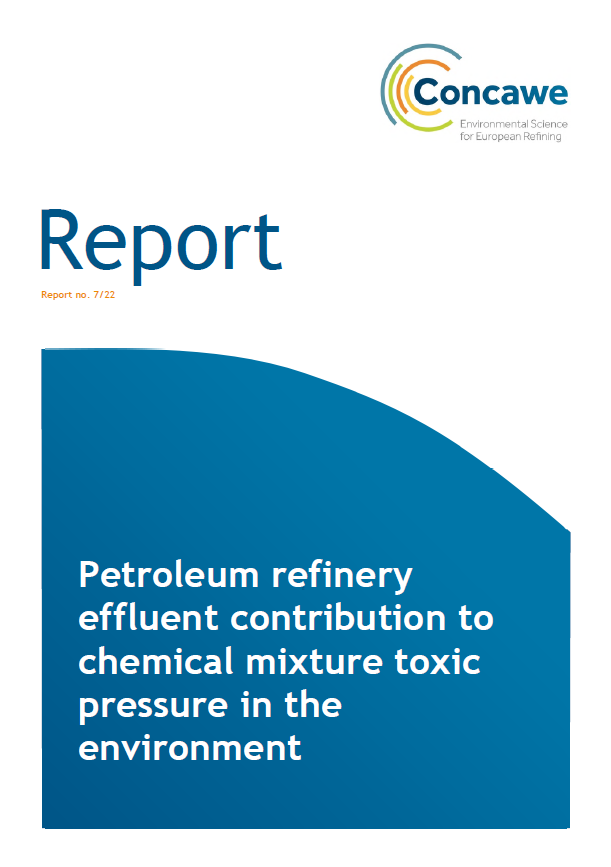
May 16, 2022
Petroleum refinery effluent contribution to chemical mixture toxic pressure in the environment
Report no. 7/22: Petroleum refinery effluents (PRE) are wastewaters from industries associated with oil refining. Within EU, PREs are regulated through local discharge permits and receive significant...
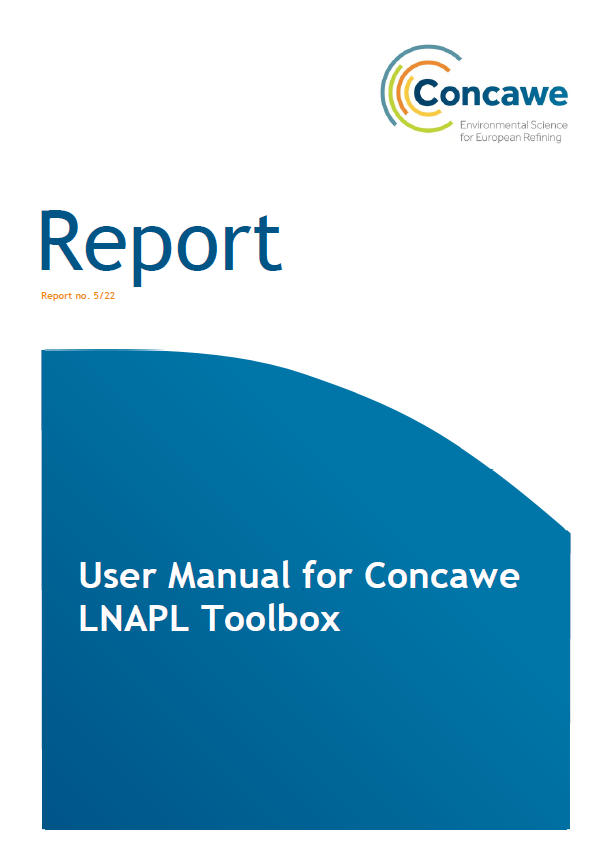
April 21, 2022
User Manual for Concawe LNAPL Toolbox
Report no. 5/22: LNAPL stands for “Light Non-Aqueous Phase Liquids” or hydrocarbons that exist as a separate undissolved phase in the subsurface at some sites with legacy releases of fuels. They a...
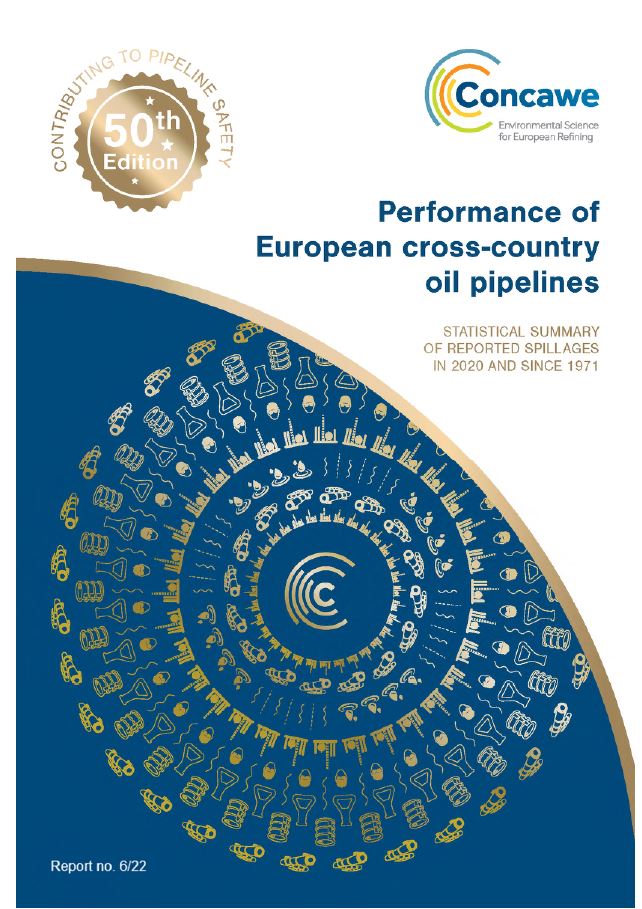
April 19, 2022
Performance of European cross-country oil pipelines – Statistical summary of reported spillages in 2020 and since 1971
Report no. 6/22: Concawe has collected 50 years of spillage data on European cross-country oil pipelines. At nearly 36,000 km the current inventory includes the majority of such pipelines in Europe, t...
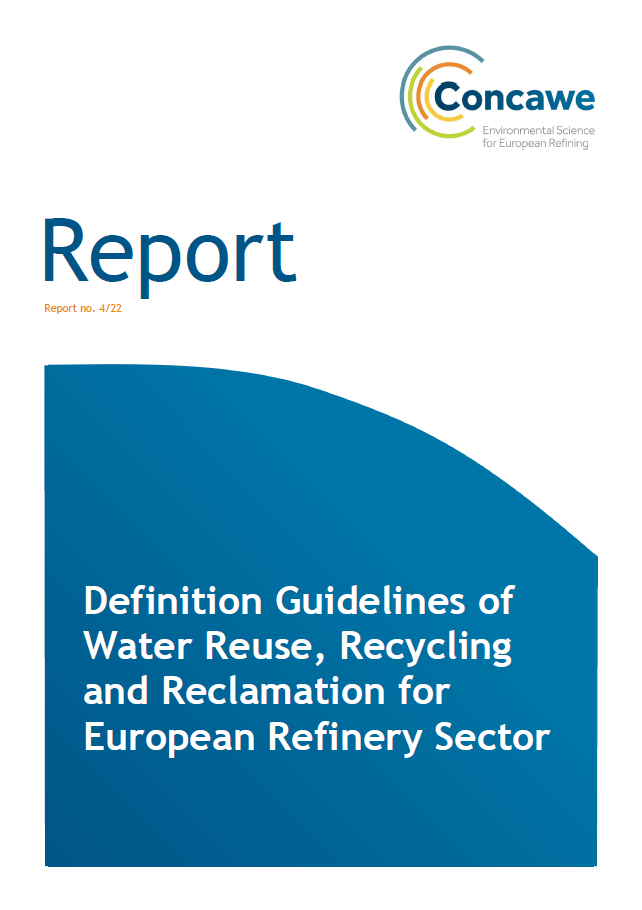
March 11, 2022
Definition Guidelines of Water Reuse, Recycling and Reclamation for European Refinery Sector
Report no. 4/22: The current Best Available Techniques (BAT) Reference document (BREF) for the mineral oil refining sector (REF BREF) contains requirements such as reducing water consumption by water...
Subscribe to publications
You can subscribe here to receive notifications about new Concawe publications (Technical Reports and the Concawe Review)
